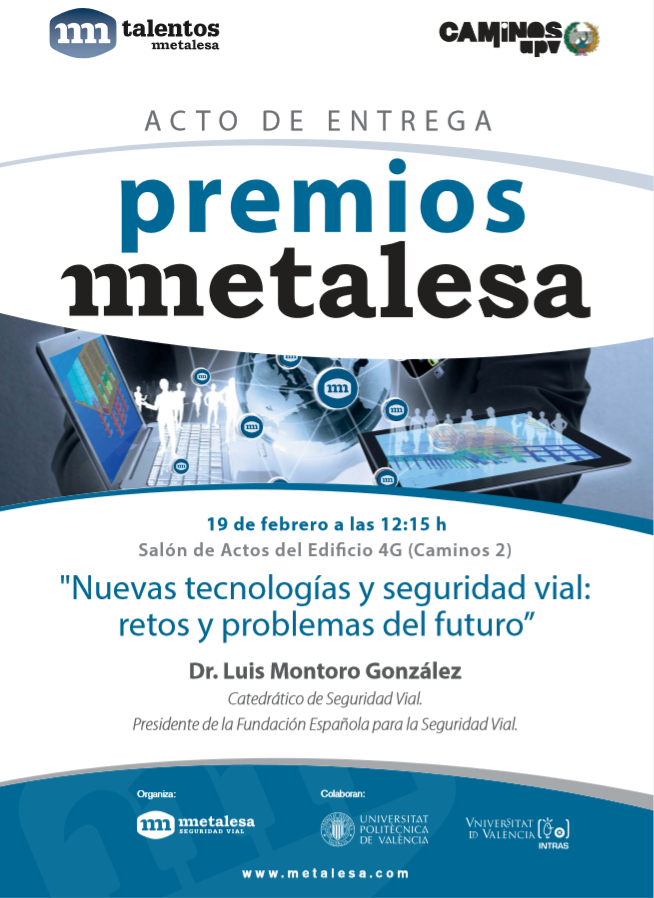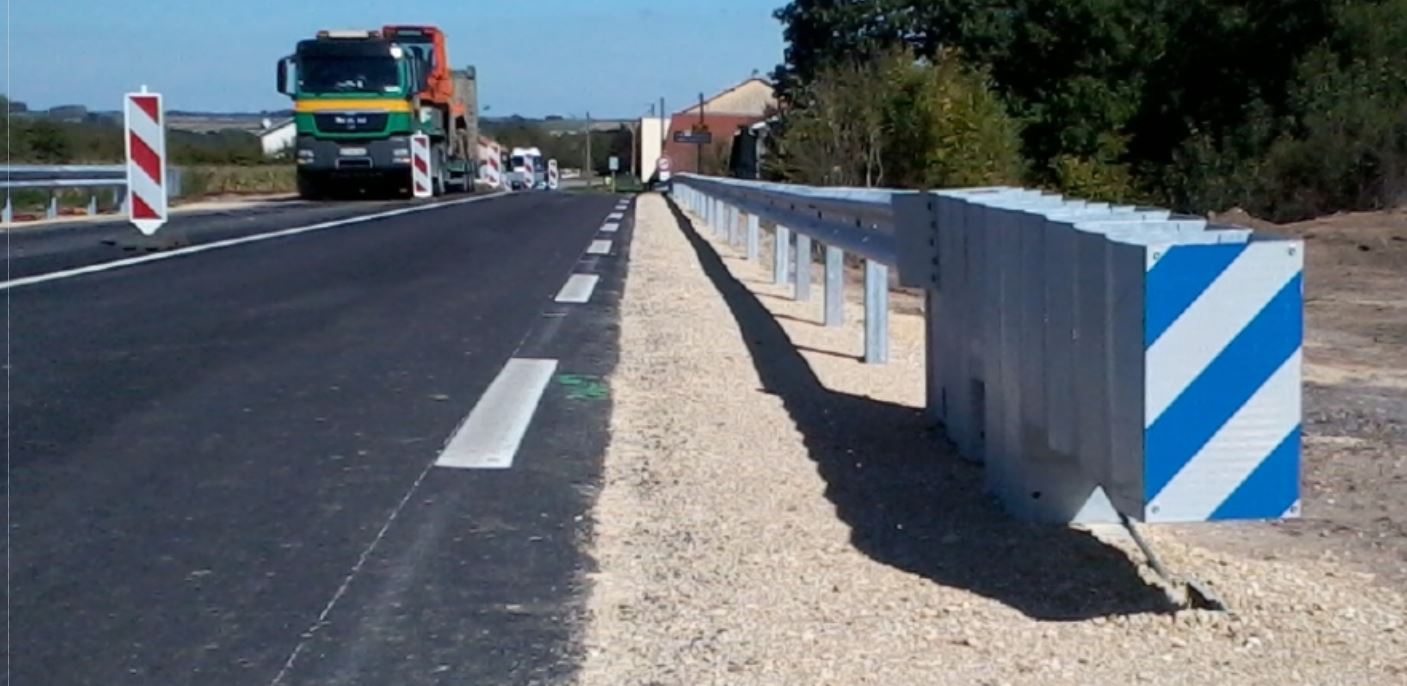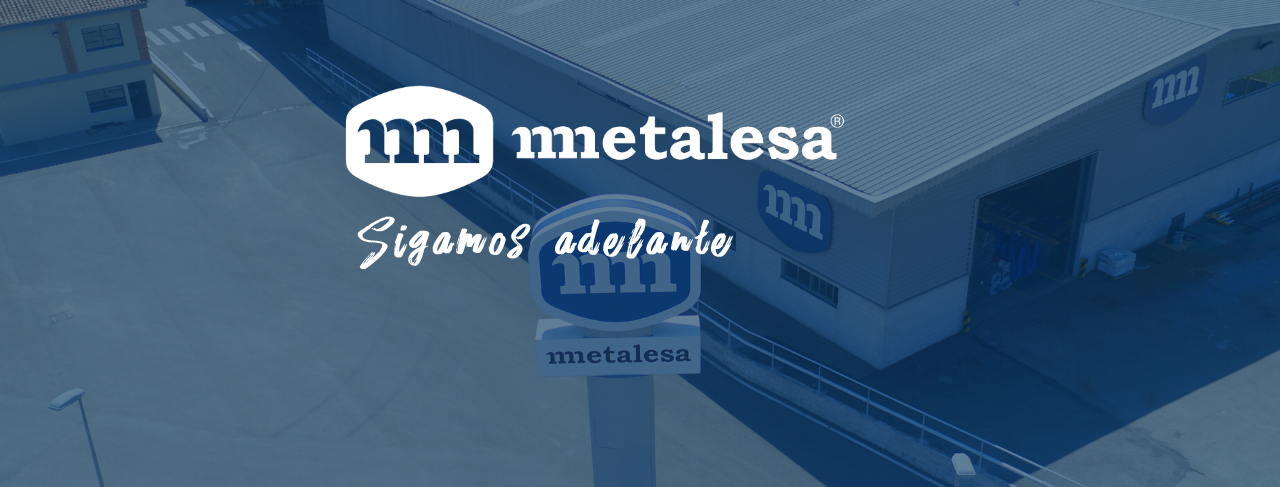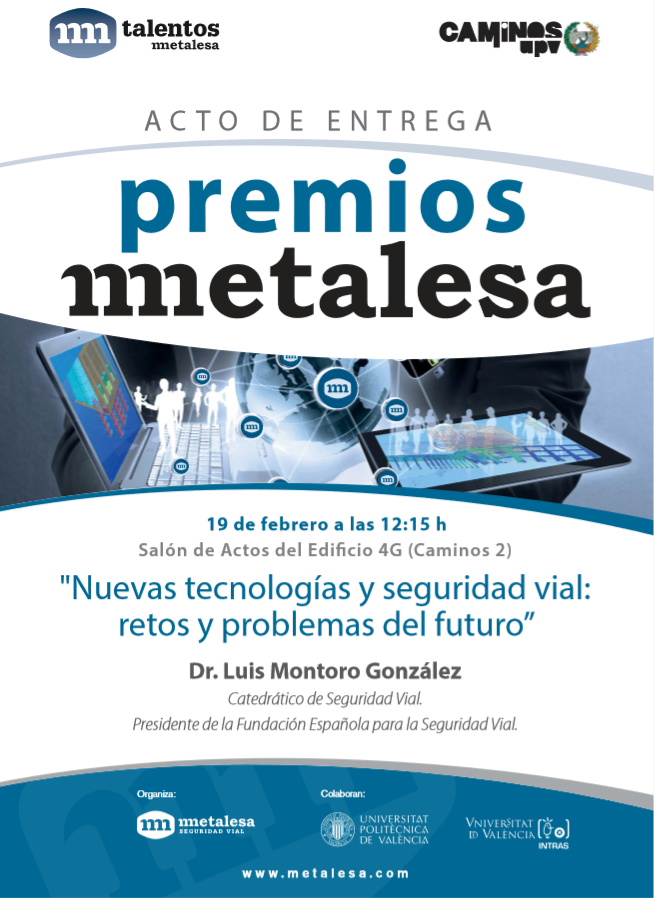Transitions and Terminals: Innovative solutions for black spots
Roads shorten distances and bring people closer together. That’s why it is so important to ensure their safety as much as possible, so that they reach their destination safely, be it their work, their family or their friends. The different national, regional and local administrations keep the main black points of our roads identified and updated, and from Metalesa, we have been participating in a number of projects that aim at providing safe solutions to these specific locations for many years. A clear commitment to remodel our roads includes equipping them with new infrastructures that fulfil the purpose of ensuring road safety. In this scenario is where we act.
Cullera-Favara Section: One of our latest Road Safety projects
During the last two years, work has been done in Cullera on the construction of a section that will undoubtedly represent a milestone for the improvement of the communication routes in the area.
As José Luis Ábalos, Minister of Transport, Mobility and Urban Agenda points out, "this action will translate into an improvement in road safety by creating an alternative route to that of the current national highway as it passes through both towns."
The truth is that residents have been demanding the completion of this infrastructure for a long time, and finally, they will be able to count on the Cullera and Favara bypass, a section included in the A-38 corridor, which represents the largest investment in this matter of infrastructures that the central government has never carried out in the Valencian region of Ribera Baixa.
Metalesa in the project: installation of transitions and terminals
At Metalesa we have been in charge of installing more than 15,000 meters of META16 metal parapet with containment level H3. We invite you to sit down to enjoy this impressive video where you can see the result of so much work.
https://www.youtube.com/watch?v=zd_MFsbvDIk
But the objective of this article is to present the transitions and terminals, other road safety products that are very unusual in Spain, but undoubtedly essential on the roads, and which will become more widespread as soon as our leaders and public administration technicians acquire greater sensitivity for the situations they avoid.
Blackhead removal with transitions and terminals
The black points or accident concentration sections (TCA) are sections of the road network in which a large number of traffic accidents occur each year.
From the Cullera City Council, they affirm that this work "was of vital importance to prevent more people from losing their lives." In addition, Oro Azorín, mayor of Favara, also believes that it will offer the town a great increase in road safety.
Municipal sources in Cullera also assure that it is good news for the entire Valencian Community because the black spots on the roads that have suffered, especially the populations of the coast, are being eliminated.
Transitions for roads
The installation of transitions for roads allows the union between containment systems of different nature, that is, it connects two safety barriers of different cross section or different level of containment, such as a metal parapet and a New Jersey-type concrete barrier.
At Metalesa we have an approved Transition designed in a versatile way, that is, it allows us to connect both our META13, containment level H2, and our META16, containment level H3, to a contiguous concrete barrier.
It is a device designed and manufactured entirely by Metalesa, and approved according to the French standard NF-058, which implies that the transitions that we install have been shock tested on a full scale according to said standard. We are the only Spanish company that has tested transitions between different containment systems on a full scale because we have decided to be ahead of our competition. We believe that the French standard represents the future of what the European standard will establish, which is currently being drafted by the standardizing technical committees to which Metalesa belongs.
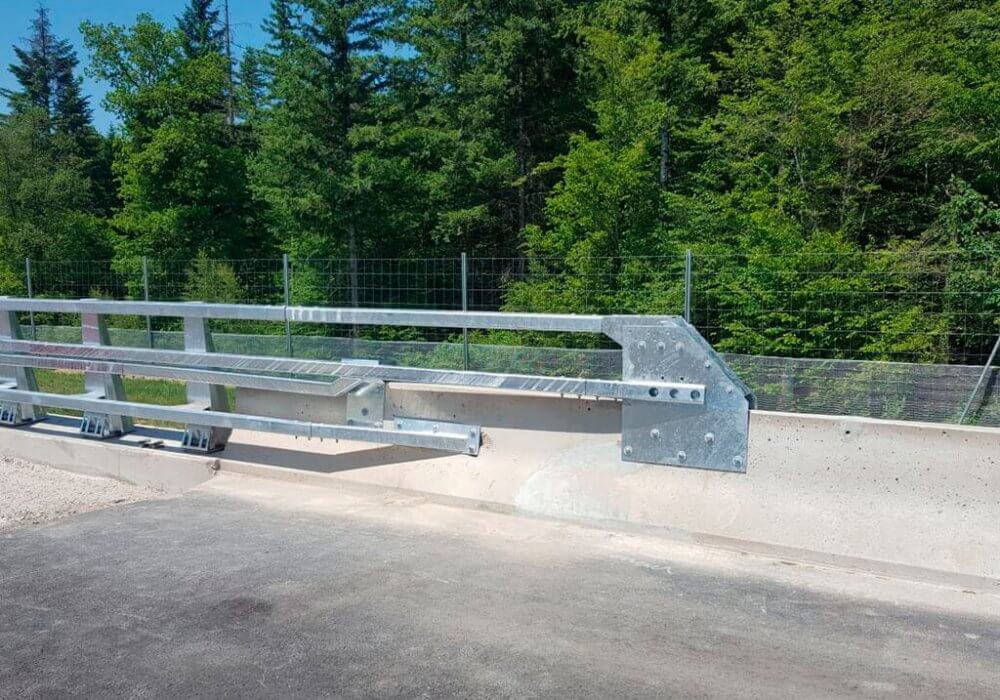
What are the advantages of installing a highway transition?
- System reliability: In the event of a side impact of the vehicle, it behaves like a conventional metallic barrier, thus guaranteeing the containment and adequate redirection of the vehicle.
- Easy to repair and repair parts available from stock.
- Anti-corrosion treatment: We offer various finishing options for road transitions, both hot-dip galvanized and thermo-lacquered, as a treatment that combines both processes.
Road Terminals
Highway terminals are placed at the ends of containment systems such as parapets or metal barriers, to ensure greater safety against a frontal impact with said completion. We have a wide range of models with different characteristics and certificates, all of which have been tested by means of tests in an accredited laboratory according to the EN 1317 standard.
We offer supply and installation of three models:
Model T50 - 50KM/H
This terminal is ideal for urban environments, in areas whose maximum permitted speed does not exceed 50 km / h.
Model P2 - 80KM/H
Terminal P2, unlike Model T50, is used on highways, where the permitted speed is not higher than 80Km / H. We have several designs of road terminals.
Model P4 - 110KM/H
This terminal is also designed to be installed on highways, but on high-speed roads. We have several homologated models of anchoring to the ground, both for concrete and earth ground.
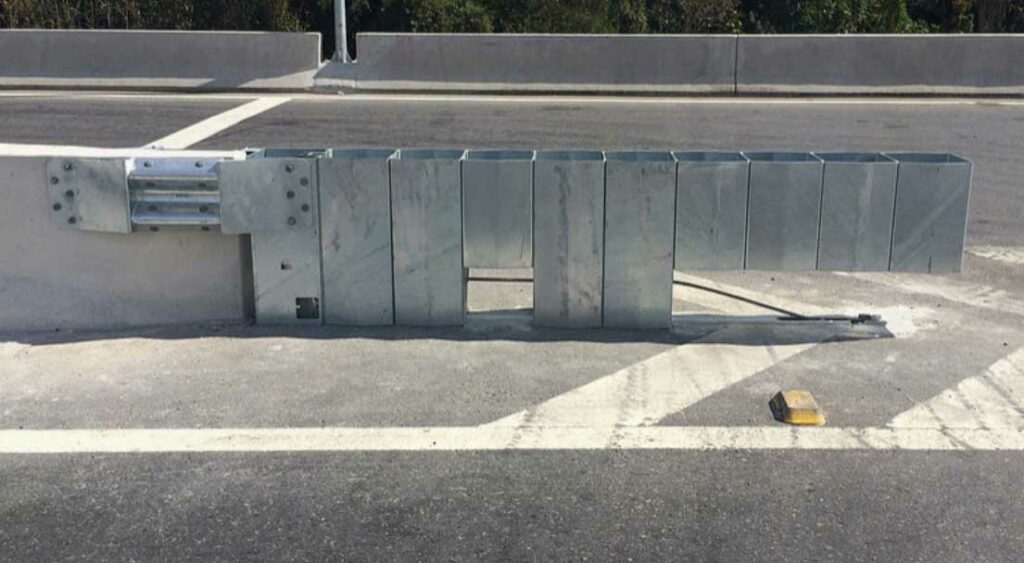
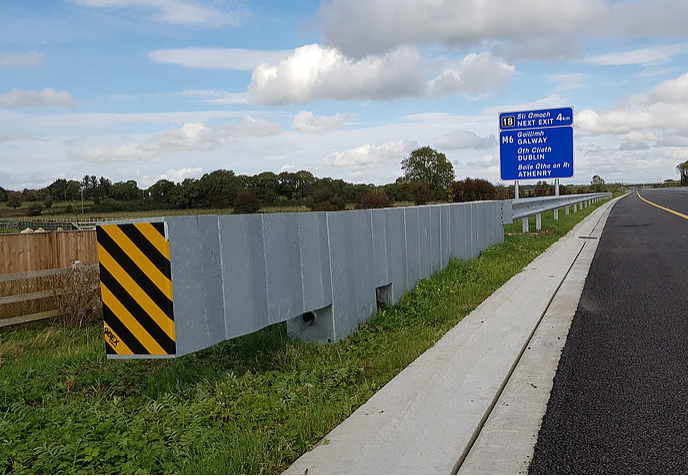
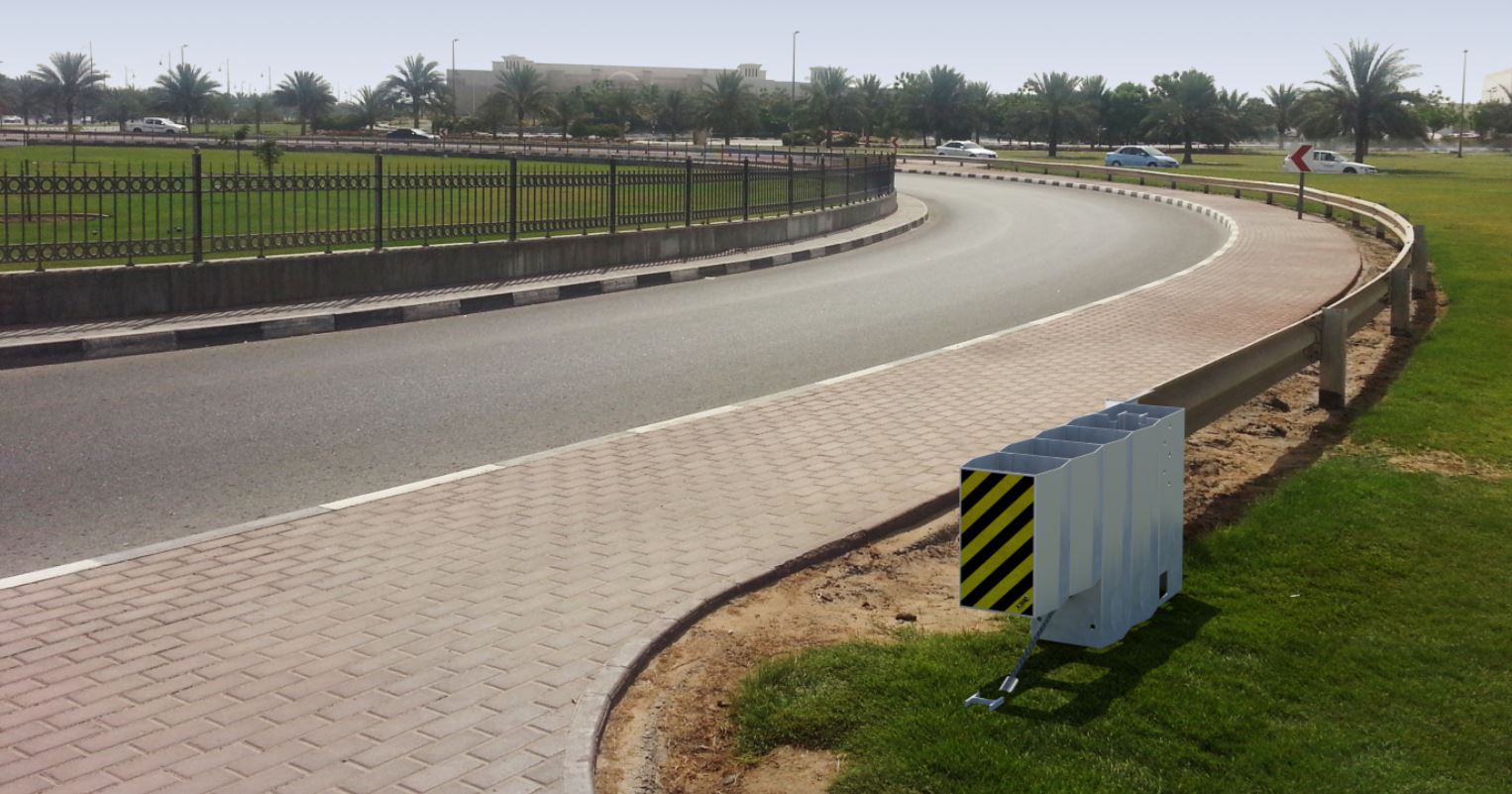
Undoubtedly, projects such as the construction of the Cullera-Favara Section, which include infrastructures for road safety such as our transitions and terminals, show that there really is a commitment to make the roads safe roads that serve what we commented at the beginning of this article: bring people closer. For more information call us at 96 088 99 44 or send us an email to metalesa@metalesa.com
Types and applications of railway equipment
Since our origins at Metalesa we have always been concerned about safety. Whether in urban environments or roads we have always worked to offer the best products with which to keep pedestrians and vehicles safe. But our scope of action does not stop there, we also have extensive experience in railway equipment products, and on this we would like to focus today’s article so that you know a little more about everything we can do for your railway project.
Products and regulations on railway safety
Like any product, there is a railway safety regulation that must be complied. In railway equipment, this corresponds mainly to the infrastructure managers (ADIF in Spain or SNCF in France). At Metalesa we have been working for many years on the deployment of the high-speed rail network in Spain, collaborating with the main companies in the sector and offering products that meet the highest quality standards.
Railings and fences type ADIF
In order to guarantee safety at the crossing points in railway infrastructures operated by ADIF, at Metalesa we have a complete range of specialized security systems that comply with the quality standards set by the network administrator.
With our range of ADIF-type railings and fences we can create a complete protection system for pedestrians on bridges, viaducts or other passage areas within railway infrastructures. When a project of these characteristics is presented to us, we carry out a study of the needs of the layout and manufacture any element that may be required.
Different anticorrosive treatments can be applied to our entire range of railings and fences. Depending on the characteristics of the project and client specifications, we can apply either a hot galvanized finish, or a thermo-lacquered finish or even a mixed application for more aggressive environments.
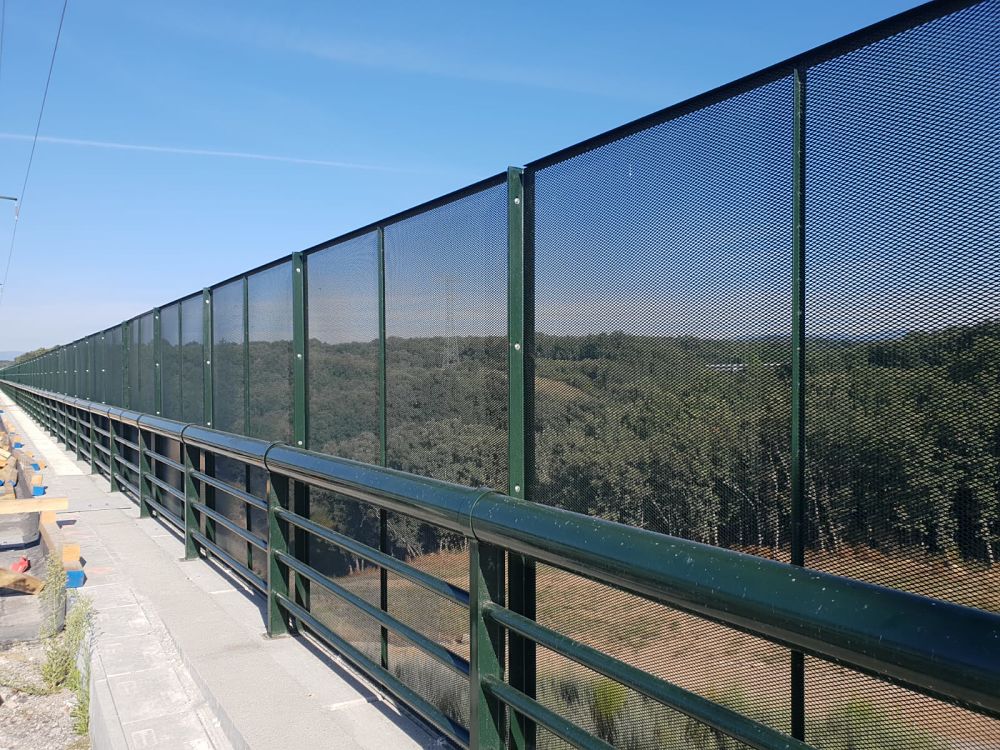
Railings and handrails for stations
At Metalesa we manufacture railings for stations with various shapes and materials to guarantee the safety of passengers, while adapting the product to the aesthetics of the place. We can manufacture them with various materials. Steel is the usual one, and under client requirement, the product can receive anti-corrosion treatments like hot-dip galvanization or thermo-lacquering to guarantee their resistance to deterioration caused by the weather and time.
We also manufacture stainless steel railings of different quality and with a wide variety of finishes, always adapting to the needs and aesthetics of the railway station.
Fences and station enclosures
Train, subway or tram stations need enclosure and fences systems that are resistant to high volume of traffic while complying with current regulations.
Regarding security systems to offer protection to people in areas close to stations or railway facilities, we have a wide variety of station enclosures and fences that we can manufacture to order to be able to solve and adapt to the requirements of the project.
The enclosure systems for railway stations are products that are often subject to inclement weather. That is why at Metalesa we work to offer different anti-corrosion treatments such as hot galvanizing, thermo-lacquering or a mixed finish that offer a layer of protection against superior humidity and oxidation.
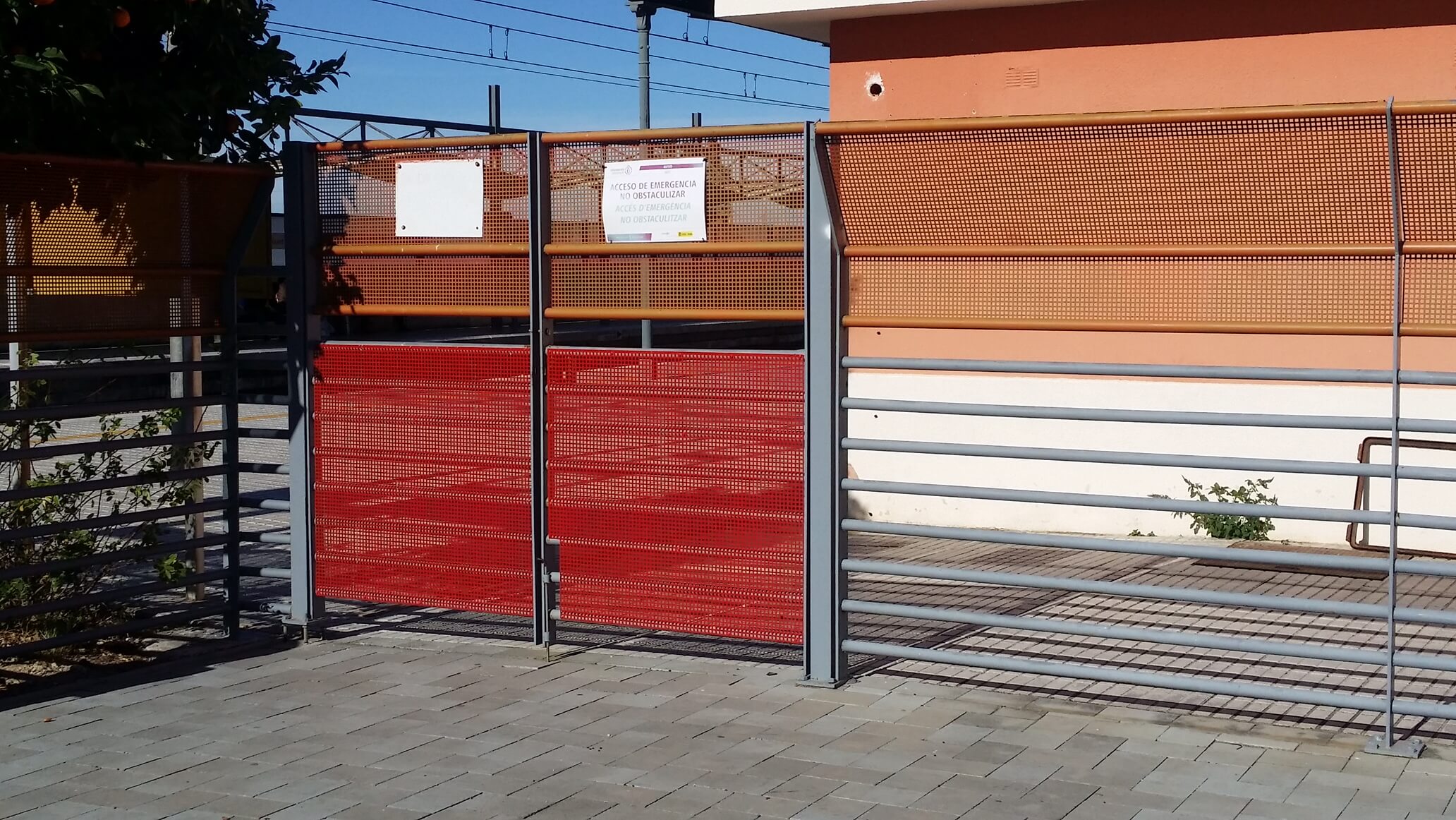
Handrail and grilles for walkways
Another of the safety systems that are installed in railway tunnels are handrails and grilles for walkways. These elements are intended to provide safety for pedestrians inside a tunnel. Our extensive experience in the tunnels of the suburban and high-speed rail network allows us to offer a customized product manufactured according to the materials and criteria that best suit the project.
When facing a new project, our technical office will carry out a needs study and present you with a proposal that meets your needs.
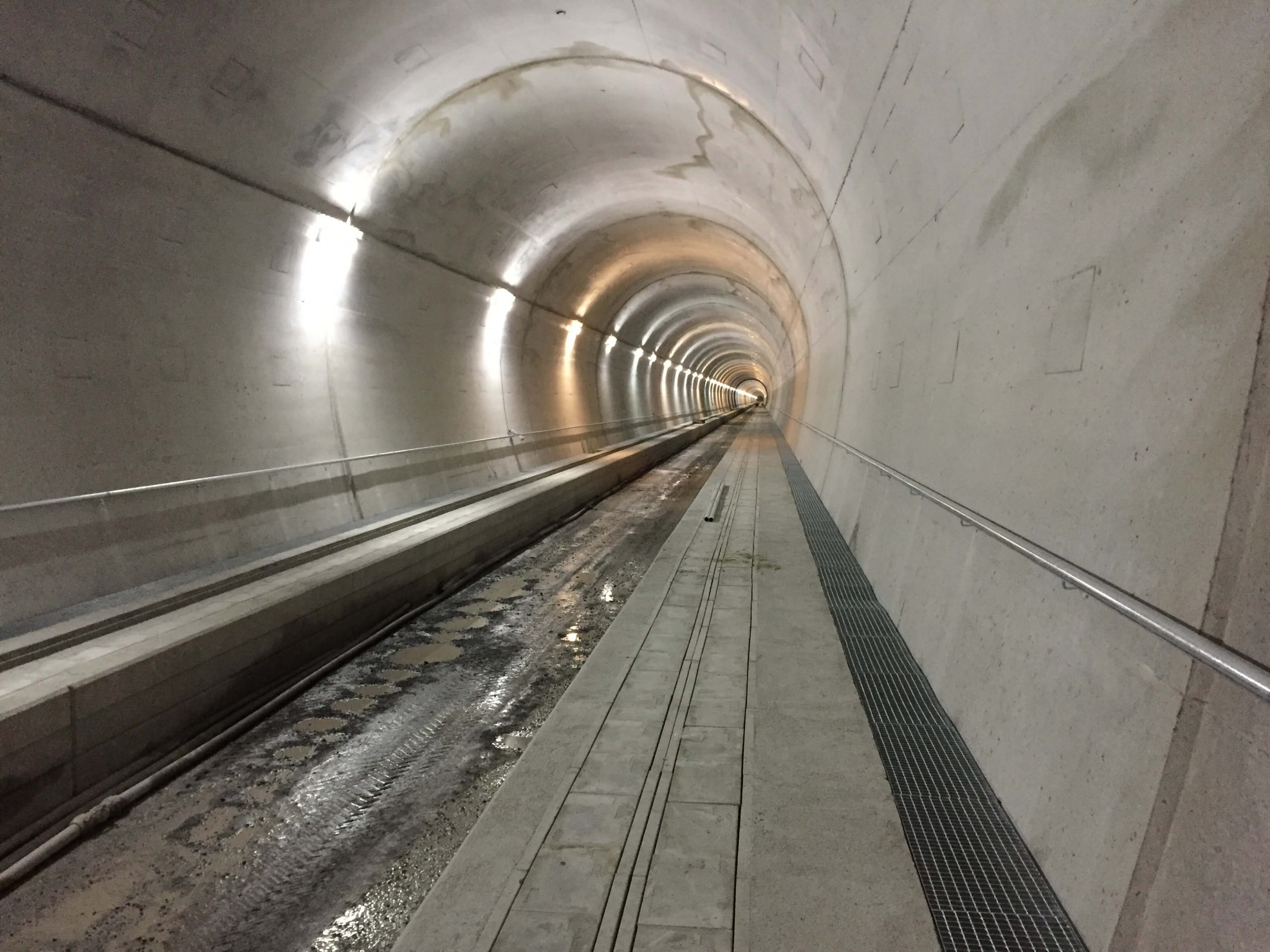
Catenary protectors
To protect the catenaries from objects launched from overpasses, we can offer catenary protectors. They can be designed and manufactured according to the specifications of each project. We have extensive experience manufacturing this type of product with different shapes and finishes.
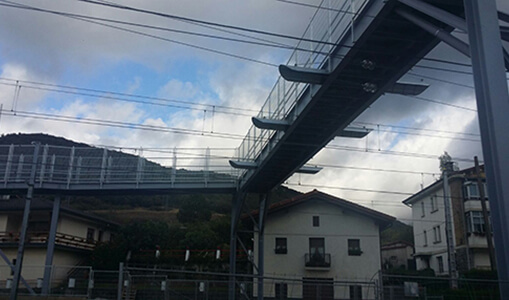
If you are thinking about a new project and you need a supplier of railway safety equipment, at Metalesa we are ready to give you a solution to these challenges and we will be happy to help you. For more information you can contact our technical office through the contact form, by calling 96 088 99 44 or 677 43 34 93 or by sending an email to metalesa@metalesa.com
Message from Metalesa in response to Coronavirus Crisis
First of all, from Metalesa we convey our most sincere support and affection for those who have been affected by the Coronavirus. We have mobilized all our resources to face all potential impacts on our employees, customers, suppliers, as well as other stakeholders.
From a manufacturing point of view, we continue to produce following even more secure procedures, while working closely with our clients to understand their needs. We are handling this dynamic situation from the permanent adaptation approach that characterizes us.
Metalesa is actively managing this new situation committed to keep our employees safe, and to continue serving our customers’ needs worldwide, always following the guidance of the authorities.
For this reason, we have joined the #EstoNOtienequePARAR initiative, a movement that is born from the will of the companies to do as much as possible to continue contributing to our environment.
LET'S GO FORWARD.
Industry 4.0 and road safety
At Metalesa we are well aware of our great responsibility since looking after people security is our goal. Thus we keep a close eye to all technological updates and breakthroughs that may bring benefits to our sector. Industry 4.0 is a wave that need to be taken.
What is industry 4.0?
This concept is not new, and indeed it is becoming global social phenomenon. It refers to the addition of digital technology to all manufacturing processes to an extend that it is considered the fourth industry revolution. Now, a little bit of history.
FIRST INDUSTRIAL REVOLUTION
By the end of XVIIIth century, steam machine burst meant the beginning of the First Industrial Revolution. No doubt road safety sector faced new challenges with railway mechanization. But lot was lacking yet until today’s situation, this was only the launch of the industrialization.
SECOND INDUSTRIAL REVOLUTION
Second Industrial Revolution started around 1870. New energy sources like gas, petrol and electricity drove a great acceleration in all senses. Furthermore, it opened doors to internationalization.
THIRD INDUSTRIAL REVOLUTION
2006 is commonly considered as the beginning of the third phase of industrial growth. At that time, industry was pushed to the need of more renewable energy sources, which led to the will of directing all efforts to more sustainable objectives. TICs and automation played a key role.
FOURTH INDUSTRIAL REVOLUTION
No matter third revolution as starting to be protagonist, it was with fourth revolution when all capabilities started to bring together synergies. It is considered to be started around 2011 and the truth is that since then, technology has been pushing forward industry operations to a new level.
How does Industry 4.0 impacts on road safety?
The technology transformation power is unquestionable. It allows to simplify, accelerate and optimize all industrial processes, that’s why any road safety company that has not embraced yet this digital transformation will be left behind. This is not Metalesa’s case.
Our infrastructures
We have strategically adopted Industry 4.0 in all areas of our business: from employee security to communications or manufacturing digital software .
Bridge barriers and cornices
Contention systems that have been tested with real crash essays. Furthermore, its materials are exposed to anticorrosive treatments.
Regarding cornices, in Metalesa we innovate each day with designs that allow to host either canalizations with water, gas, electricity or telecommunication supplies.
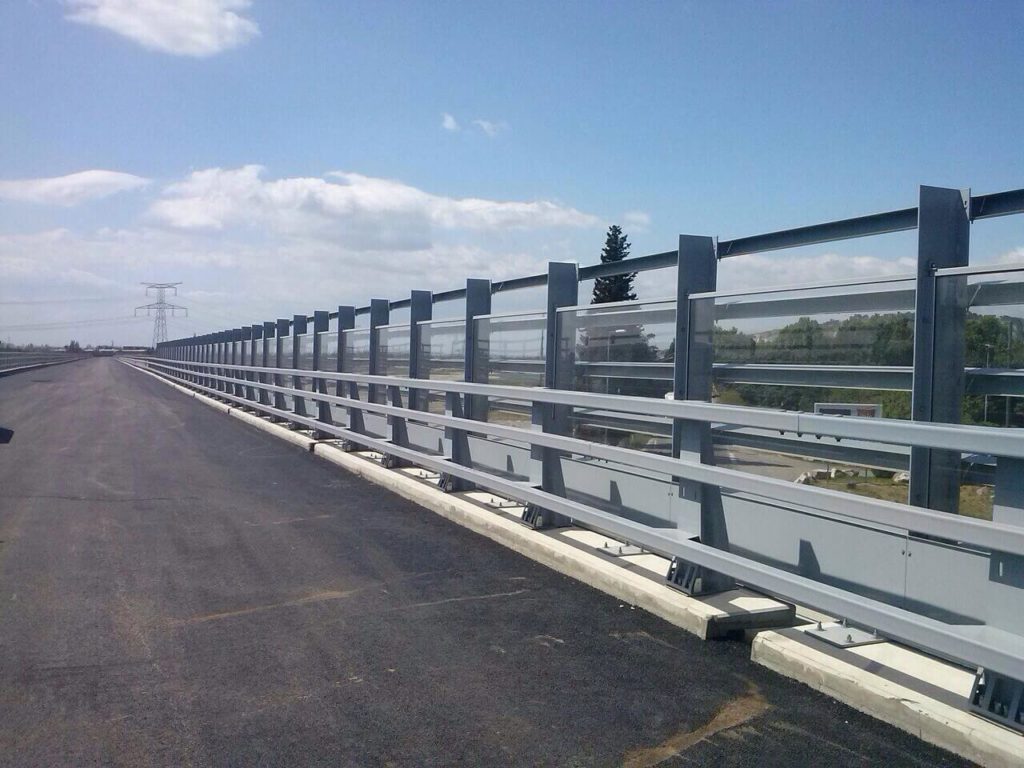
Noise barriers and panels
We manufacture noise barriers of a number of different materials, from steel, aluminium or methacrylate to fight noise pollution to bird anti-collision, to even some “vegetable” that can be integrated in an environmental friendly way. In Metalesa we provide the most suitable option for any project or need; security, noise isolation and aesthetics can go hand-in-hand.
Handrails and Fences
These handrails can be installed either in railway infrastructures or over bridges and viaducts. Hence, we adapt to any type of structure and with a wide variety of materials. Following high quality standards, our handrails are exposed to anticorrosive treatments with three possible finishes: hot-dip galvanized, thermo-lacquered or both combined at the same time.
Our engineers optimize anchoring systems with breaking-edge calculation technology so that best results are achieved in handrail installation and performance.
Of course, looking after the people in charge of our processes and equipment is one of our priorities. We have always extrapolated our concern for road safety to our people’s security,
Equipment for railway and tunnel infrastructures
Spanish railway network has been counting on Metalesa’s products and experience for a lot of years. We provide wide experience in manufacturing, supplying and installing metallic equipment for overpasses like ADIF and SNCF fences or handrails, fences for train stations or stopping places, protection for electric cables, or combined systems.
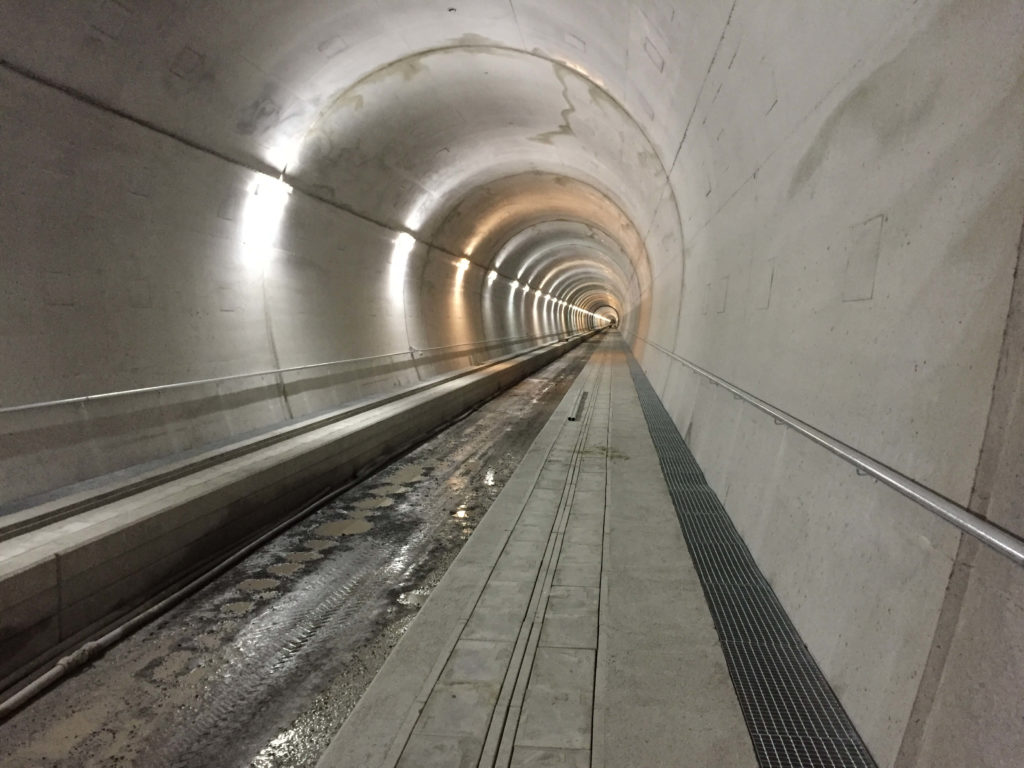
Technology is all around our manufacturing and installing processes, and believe in its advantages. Our vision inspires us to keep on implementing our technological capabilities to be at the front line of industry 4.0. Staying behind is not an option for Metalesa when it comes to innovation.
Should you require our services, don’t hesitate to contact us, all road and urban infrastructures are possible with Metalesa.
METALESA, heading towards international success
On the occasion of the first Opportunities for internationalisation meeting organised by Cajamar and El Mundo, César Valero, Deputy Director at METALESA, gave an interview along with directors from other companies of the Valencian Community. They contributed their outlook and experience on the keys, challenges and risks of internationalisation to a company.
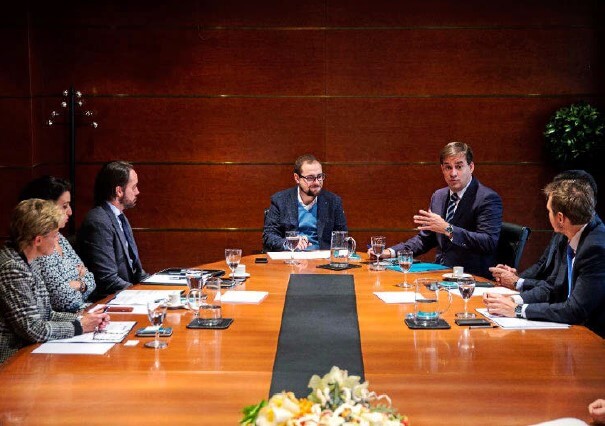
Among other ideas, the experts commented that the circumstances may be more favourable or less so depending on the country in which you want to expand, and that the market and legal contexts should be studied in detail. César Valero stressed the importance of hiring people that enable the organisation to compete in a more demanding environment. He also pointed out that the company’s size is not the only determining factor in internationalisation, but did recognise that in sectors such as public works it is a great help to be more competitive.
The interview highlighted the progressive growth of METALESA in France and its countries of influence, which requires great strides in self-discipline to provide a quality service.
Other topics discussed were the importance of seeking expert advice on the target market, opening up to foreign partners and the financial muscle to undertake a process that may take time to produce results. Read the interesting interview about international success in full.
LUIS MONTORO WILL PARTICIPATE IN THE CEREMONY FOR THE 2ND METALESA AWARDS
During Engineering Week of the UPV’s School of Civil Engineering (SICMA 2019), METALESA will hold an event on Tuesday 19 February at 12:15pm to announce the winners of the 2nd METALESA AWARDS for the best Final Degree Project.
One year more, this initiative is part of the Metalesa Talent Platform, which arose from our company’s commitment to promoting endeavour and talent amongst new generations of engineers as well as to offer them a real experience of the civil works sector.
The event will be attended by Dr Luis Montoro González, Professor of Road Safety at the University of Valencia and President of the Spanish Road Safety Foundation. His speech will deal with the challenges we are face with when integrating emerging technologies into road safety systems.
